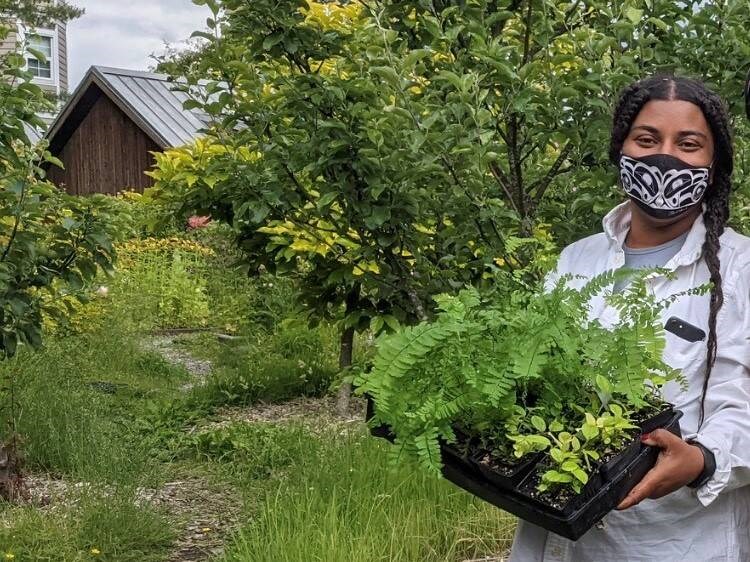As the housing affordability challenge continues to grow in Richmond, many people are being forced to live in a small indoor space.
And it’s especially difficult in winter when people have limited access to the great outdoors.
Step forward a free workshop called “Home Grown: Indoor Food Growing,” taking place on Sunday, Sep 17 in Richmond, aims to teach locals how to grow indoor herbs and greens in their home, so they can be surrounded by greens by the time winter arrives.
“Plants have been shown to improve your mental health, uplift your wellbeing, so it’s something that’s really important for everybody to feel connected to plants,” said Alisha Lettman, instructor of the workshop.
“Herbs have a very long history for all different groups. (It can be) medicine, food or for craft and creative material.”
For a diverse city like Richmond with many immigrants, Lettman hopes the workshop will help them learn the techniques to grow herbs and plants at home, reflecting their food and plant traditions and reconnecting with their traditional cultures.
“Food is something that reminds them of home, it reminds them of who they are, it’s very familiar. And it’s something that is also really expensive here in Canada today,” she said.
“When we have a connection to our ancestral foods or traditional foods, it’s an even deeper kinship that we can develop with the world.”
DIY a vertical garden at home this fall
You don’t need a big house or expensive tools to grow herbs and plants at home – you can build your own vertical garden with some soda bottles.
“You just use a medium or large-sized soda bottle, you cut them and you stack them and can attach them to a fence or a wall to keep them upright,” explained Lettman.
“Then we’ll fill them with soil and place them in an area that can catch any excess water, and there you have a very easy way to make a vertical growing area.”
The best things to plant in fall are thyme, green onion, bok choy and lettuce and it’s best to have seedlings already started because of the time of year where the sun is out right now, she added.
“By spring, you’ll be able to plant flowers and anything that doesn’t require too much soil space… You would be surprised at how many international foods and medicines can grow here, because we have a very warm climate.”
Lettman said there are similarities in the food traditions of different cultures and she hopes this workshop will also help people from diverse backgrounds realize how interconnected they are and feel a stronger sense of belonging to the community.
“A lot of the folks who are coming to the workshop are seniors and so as they have emigrated, their grandchildren may not be as familiar with some of these traditional foods, they may not feel accepted at school when they are eating these things their friends maybe have never heard of,” said Lettman.
“So we also want to encourage people to feel a sense of pride for their ancestral foods and traditions, and to recognize this knowledge that they have and the traditions - that they have a valuable place in Canada.”
Check here for more information about the workshop.



